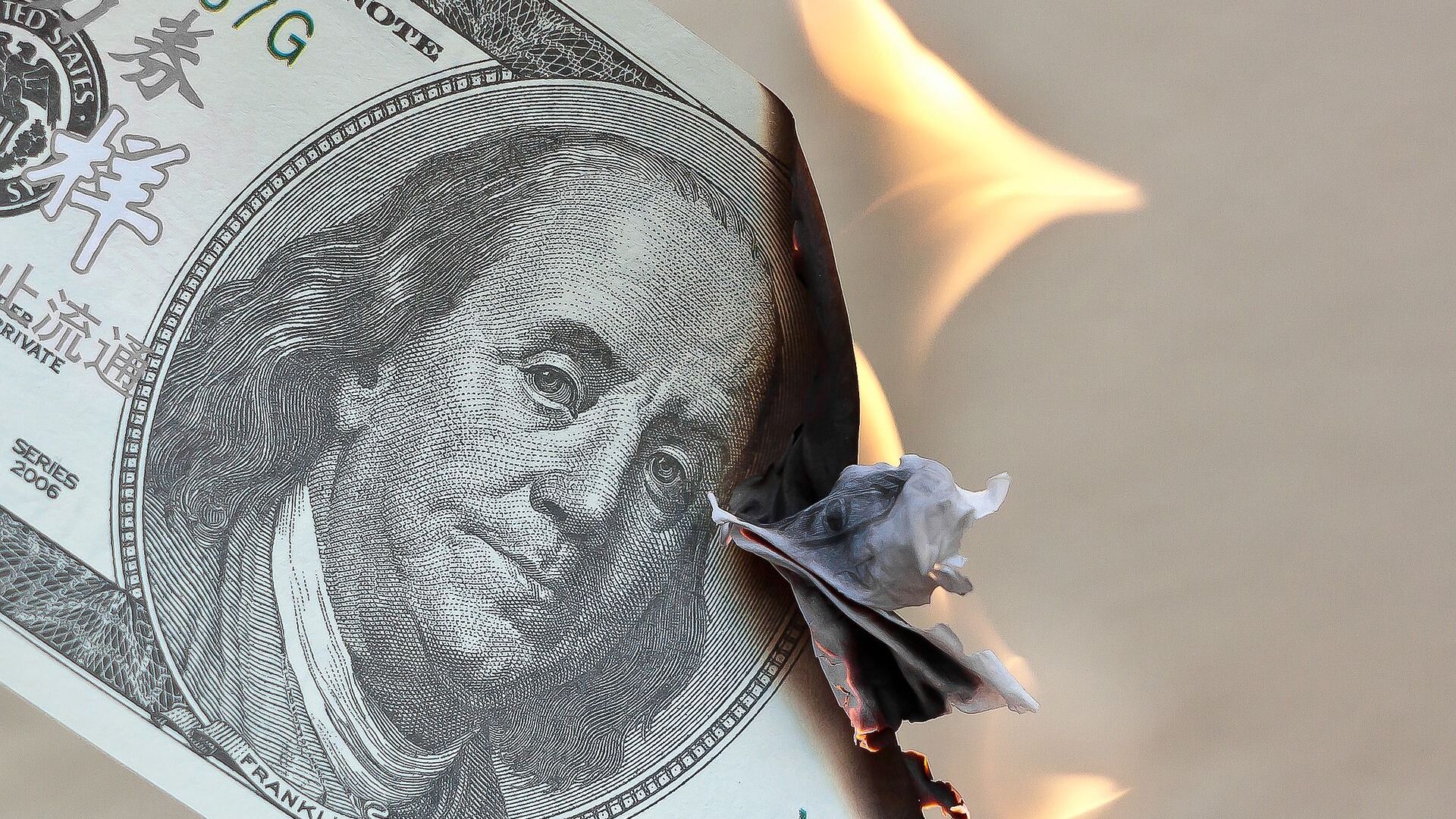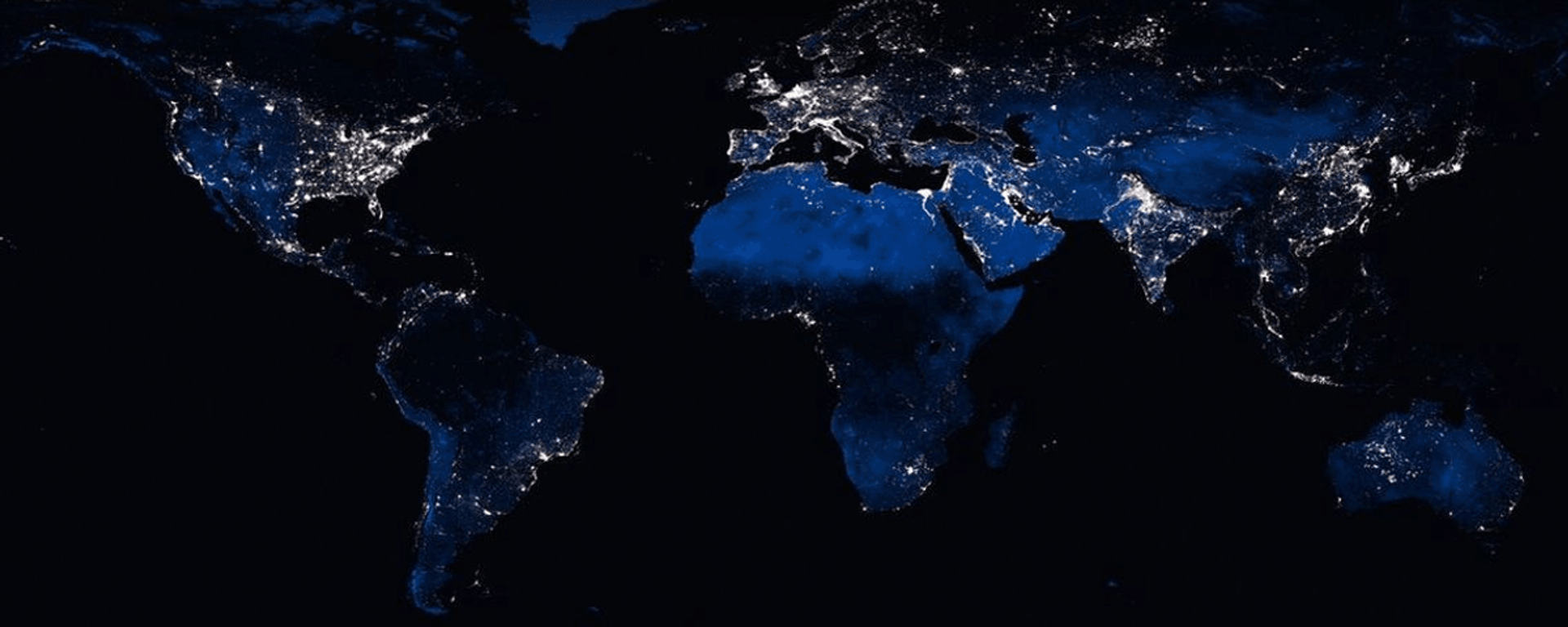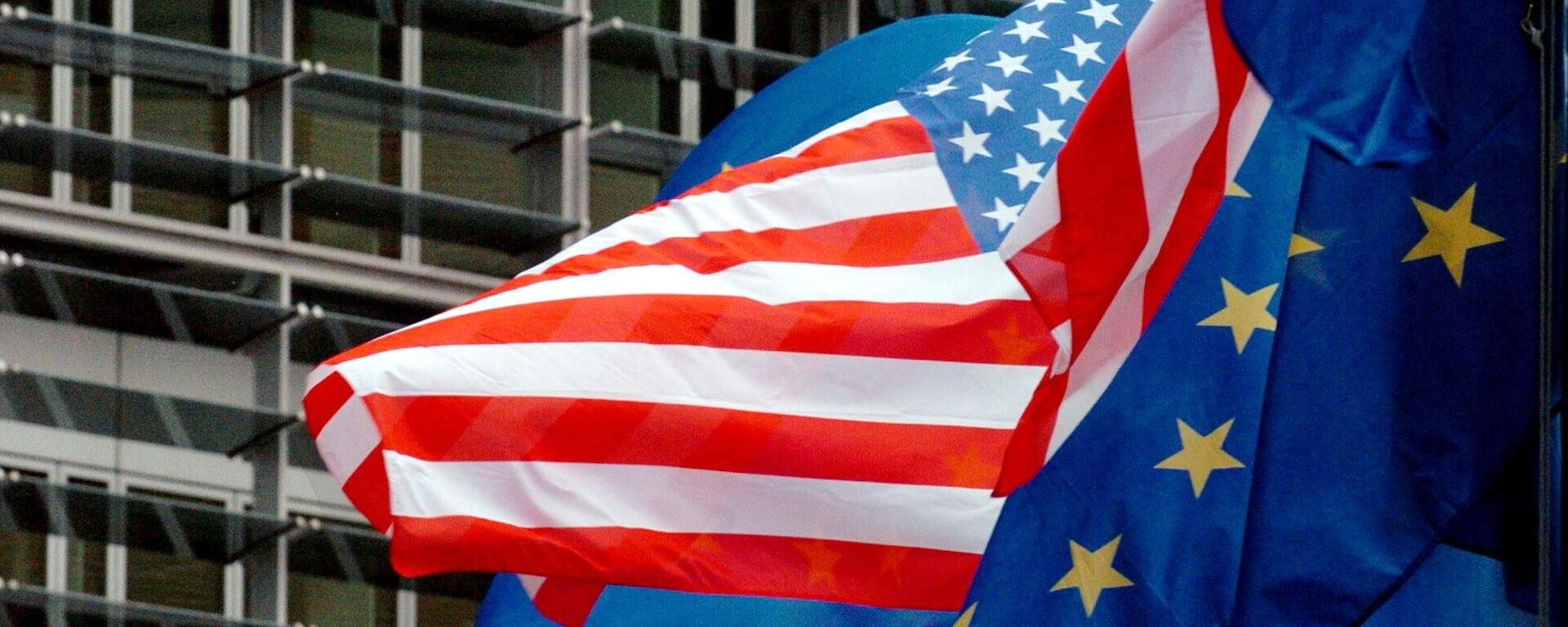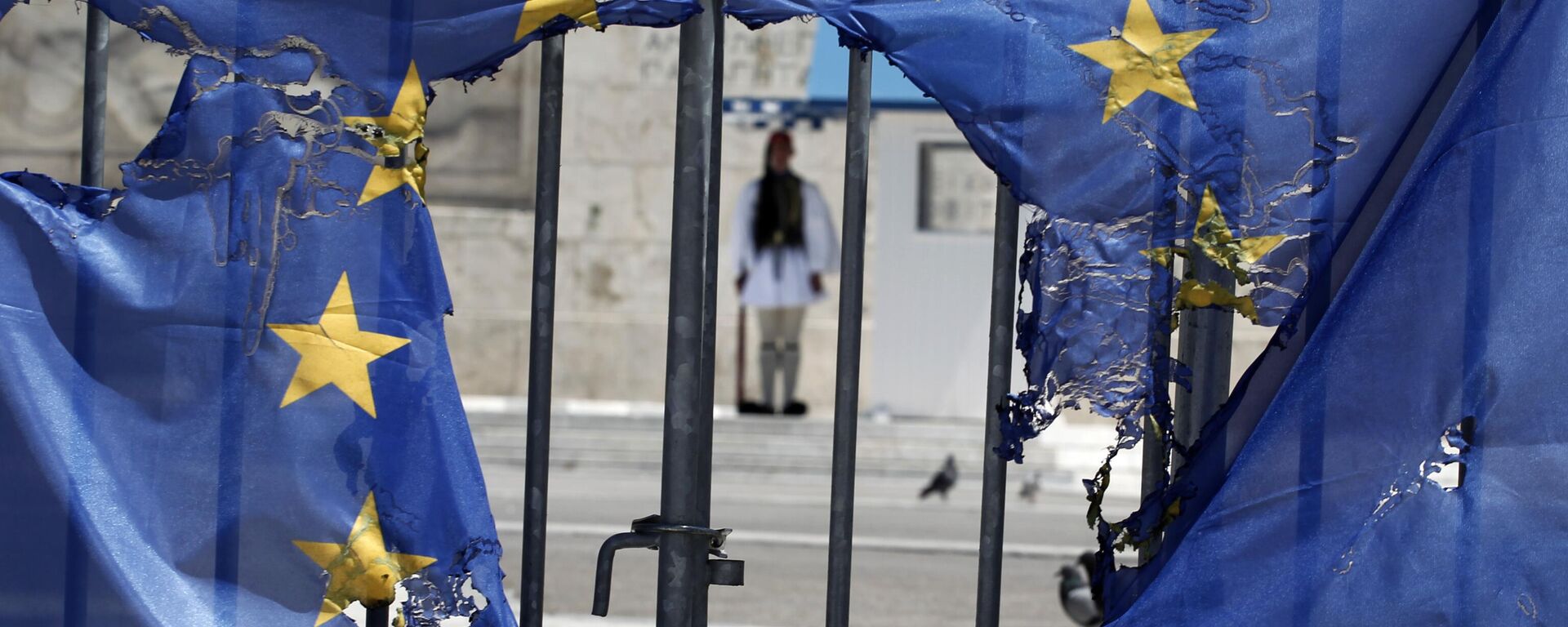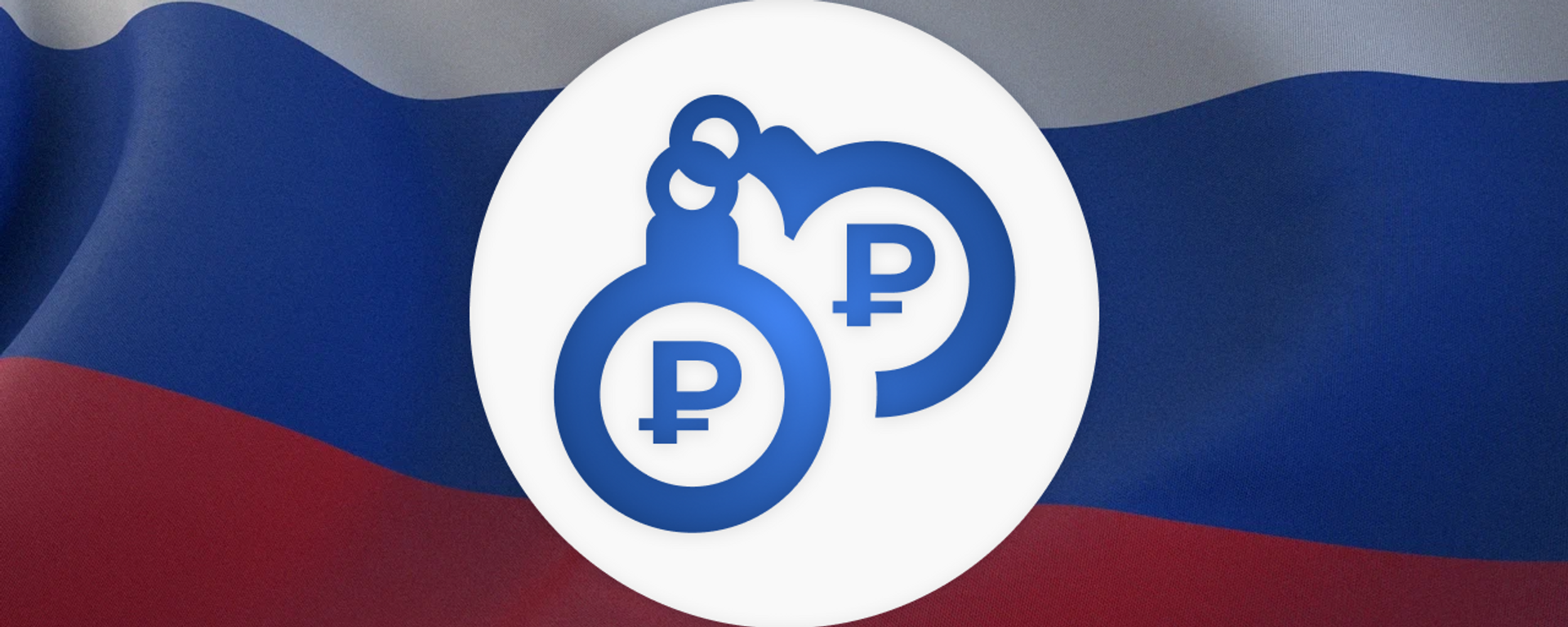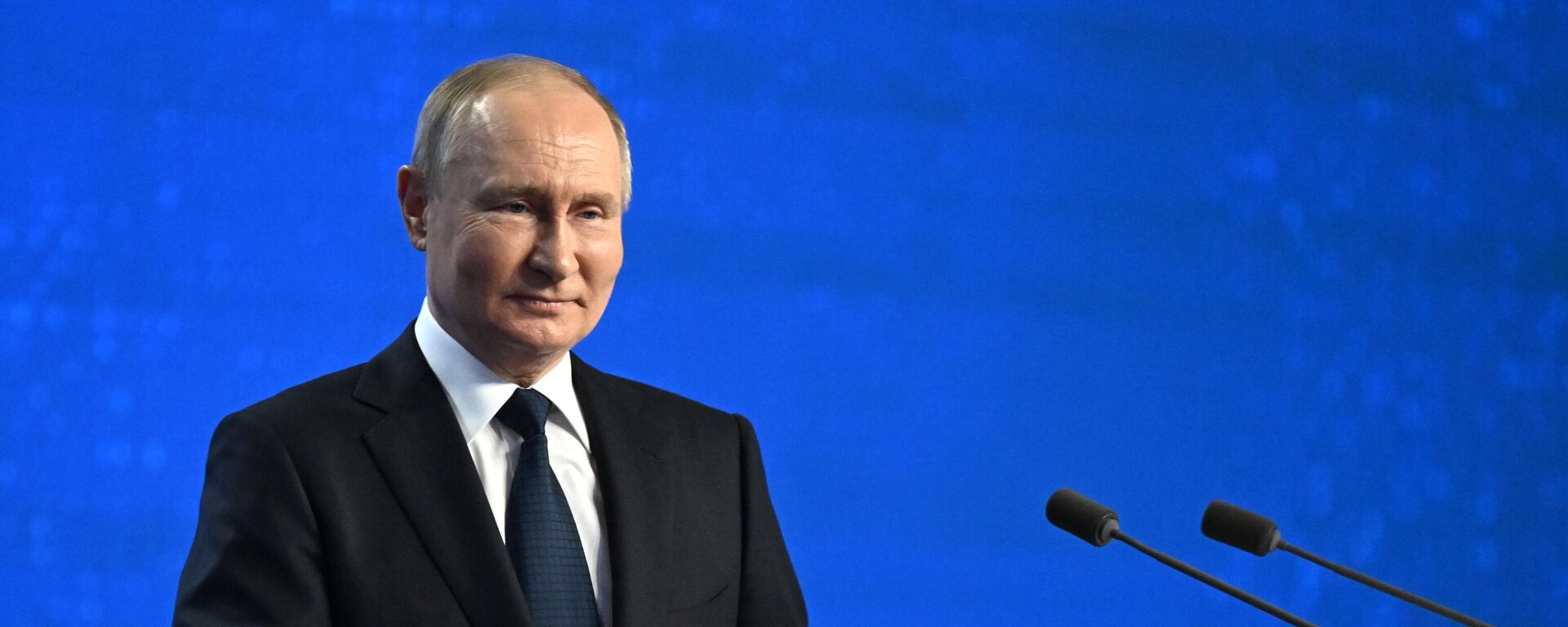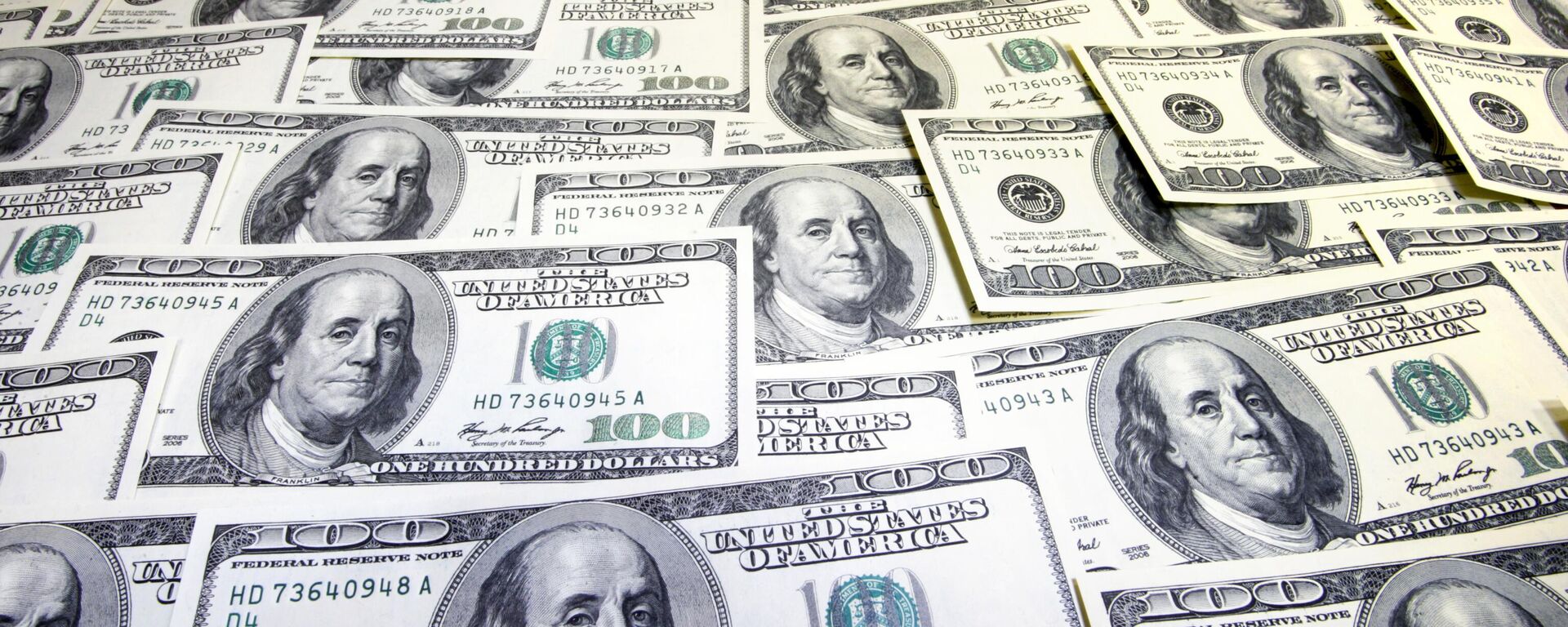https://sputnikglobe.com/20240228/rocky-road-to-dedollarization-sergei-glazyev-interview--1117034183.html
Rocky Road to Dedollarization: Sergei Glazyev Interview
Rocky Road to Dedollarization: Sergei Glazyev Interview
Sputnik International
Very few people in Russia and across the Global South are as qualified as Sergei Glazyev, the Minister for Integration and Macroeconomics, to speak about the drive, the challenges and the pitfalls in the road towards de-dollarization.
2024-02-28T11:16+0000
2024-02-28T11:16+0000
2024-03-04T13:50+0000
world
dedollarisation
brics
pepe escobar
new development bank (ndb)
currency
dollar
digital currency
digital
digital infrastructure
https://cdn1.img.sputnikglobe.com/img/107963/97/1079639749_0:146:1920:1226_1920x0_80_0_0_7da62549fd722a235b7b615c464dee32.jpg
As the Global South issues widespread calls for real financial stability; India inside the BRICS 10 makes it clear that everyone needs to think seriously about the toxic effects of unilateral sanctions; and Professor Michael Hudson keeps reiterating current policies are not sustainable anymore, Glazyev graciously received me at his office at the EEC for an exclusive, extensive conversation, including fascinating off the record odds and ends.These are the highlights – as Glazyev’s ideas are being re-examined, and there’s huge expectation for the green light from the Russian government for a new trade settlement model – which for the moment is in the final stages of fine-tuning.Glazyev explained how his main idea was “elaborated a long time ago. The basic idea is that a new currency should be first of all introduced on the basis of international law, signed by the countries which are interested in the production of this new currency. Not via some kind of conference, like Bretton Woods, with no legitimacy. At the first stage, not all countries would be included. BRICS nations will be enough - plus the SCO. In Russia, we already have our own SWIFT - the SPFS. We have our currency exchange, we have correspondent relations between banks, consultation between Central Banks, here we are absolutely self-sufficient.”All that leads to adopting a new international currency: “We don’t really need to go large scale. BRICS is enough. The idea of the currency is that there are two baskets: one basket is national currencies of all countries involved in the process, like the SDR, but with more clear, understandable criteria. The second basket are commodities. If you have two baskets, and we create the new currency as an index of commodities and national currencies, and we have a mechanism for reserves, according to the mathematical model that will be very stable. Stable and convenient.”Then it’s up to feasibility: “To introduce this currency as an instrument for transactions would not be too difficult. With good infrastructure, and all Central Banks approving it, then it’s up to businesses to use this currency. It should be in digital form – which means it can be used without the banking system, so it will be at least ten times cheaper than present transactions through banks and currency exchanges.”That Thorny Central Bank Question“Have you presented this idea to the Chinese?”“We presented it to Chinese experts, our partners at Renmin University. We had good feedback – but I did not have the opportunity to present it on a political level. Here in Russia we promote the discussion via papers, conferences, seminars, but there’s still no political decision on introducing this mechanism even on the BRICS agenda. The proposal by our team of experts is to include it in the agenda of the BRICS summit next October in Kazan. The problem is the Russian Central Bank is not enthusiastic. The BRICS have only decided on an operating plan to use national currencies – which is also a quite clear idea, as national currencies are already used in our trade. Russian ruble is the main currency in the EAEU, trade with China is conducted in rubles and renminbi, trade with India and Iran and Turkiye also switched to national currencies. Each country has the infrastructure for it. If Central Banks introduce digital national currencies and allow them to be used in international trade, it’s also a good model. In this case crypto exchanges can easily balance payments – and it’s a very cheap mechanism. What is needed is an agreement from Central Banks to allow a certain amount of national currencies in digital form to participate in international transactions.”“Would that be feasible already in 2024, if there is political will?”“There are some start-ups already. By the way, they are in the West, and the digitalization is conducted by private companies, not Central Banks. So the demand is there. Our Central Bank needs to elaborate a proposal for the summit in Kazan. But this is only one part of the story. The second part is price. For the moment price is determined by Western speculation. We produce these commodities, we consume them, but we do not have our own price mechanism, which will balance supply and demand. During the Covid panic, the price for oil fell to nearly zero. It’s impossible to make any strategic planning for economic development if you do not control prices of basic commodities. Price formation with this new currency should get rid of Western exchanges of commodities. My idea is based on a mechanism that existed in the Soviet Union, in the Comecon. In that period we had long-term agreements not only with socialist countries, but also with Austria, and other Western countries, to supply gas for 10 years, 20 years, the basis of this price formula was the price for oil, and the price for gas.”So what stands out is the effectiveness of a long-term, long view policy: “We did create a long-term pattern. Here in the EEC we are looking at the idea of a common exchange market. We already prepared a draft, with some experiments. The first step is the creation of an information network, exchanges in different countries. It was rather successful. The second step will be to set up online communication between exchanges, and finally we move to a common mechanism of price formation, and open this mechanism for all other countries. The main problem is that the major producers of commodities, first of all the oil companies, they don’t like to trade through exchanges. They like to trade personally, so you need a political decision to make sure that at least half of production of commodities should go through exchanges. A mechanism where supply and demand balance each other. For the moment the price of oil in foreign markets is ‘secret’. It’s some type of colonial times thinking. ‘How to cheat’. We must create legislation to open all this information to the public.”The NDB in Need of a Shake-upGlazyev offered an extensive analysis of the BRICS universe, based on how the BRICS Business Council had its first meeting on financial services in early February. They agreed on a working plan; there was a first session of fintech experts; and during this week a breakthrough meeting may lead to a new formulation – for the moment not made public – to be put into the BRICS agenda for the October summit.“What are the main challenges within the BRICS structure in this next stage of trying to bypass the US dollar?”“BRICS in fact is a club which doesn’t have a secretariat. I can tell it, from a person that has some experience in integration. We discussed the idea of a customs union here, on the post-Soviet territory, immediately after the collapse. We had a lot of declarations, even some agreements signed by heads of state, over a common economic space. But only after the establishment of a commission the real work stated, in the year 2008. After 20 years of papers, conferences, nothing was done. You need someone who’s responsible. In BRICS there is such an organization - the NDB [New Development Bank]. If the heads of state decide to appoint the NDB as an institution which will elaborate the new model, the new currency, organize an international conference with the draft of an international treaty, this can work. The problem is that the NDB works according to the dollar charter. They have to reorganize this institution in order to make it workable. Now it works like an ordinary international development bank under the American framework. The second option would be to do it without this bank, but that would be much more difficult. This bank has enough expertise.”“Could an internal shake-up of the NDB be proposed by the Russian presidency of BRICS this year?”“We are doing our best. I’m not sure the Ministry of Finance understands how serious this is. The President understands. I personally promoted this idea to him. But the chairman of the Central Bank, and ministers are still thinking in the old IMF paradigm.”‘Religious Sects Don’t Create Innovation’Glazyev had a serious discussion on sanctions with the NDB:“I discussed this issue with Mrs. Rousseff [the former Brazilian President, currently presiding the NDB) at the St. Petersburg Forum. I gave her a paper about it. She was rather enthusiastic and invited us to come to the NDB. But afterwards there was no follow-up. Last year everything was very difficult.”On BRICS, “the financial services working group is discussing reinsurance, credit rating, new currencies in fintech. That’s what should be in the agenda of the NDB. The best possibility would be a meeting in Moscow in March or April, to discuss in depth the whole range of issues of BRICS settlement mechanism, from most sophisticated to least sophisticated. It would be great if the NDB sign up for it, but as it stands there is a de facto gulf between the BRICS and the NDB.”The key point, insists Glazyev, is that “Dilma should find time to organize these discussions at a high level. A political decision is needed.”“But wouldn’t that decision have to come from Putin himself?”“It’s not so easy. We heard statements by at least three heads of the state: Russia, South Africa and Brazil. They publicly said ‘this is a good idea’. The problem, once again, is there is no task force yet. My idea, which we proposed before the BRICS summit in Johannesburg, is to create an international working group – to prepare in the next sessions the model, or the draft, of the treaty. How to switch to national currencies. That’s the official agenda now. And they have to report about that in Kazan [for the BRICS annual summit]. There are some consultations between the Central Banks and Ministers of Finance.”Glazyev cut to the chase when it comes to the inertia of the system: “The main problem for bureaucrats and experts is ‘why they don’t have ideas?’ Because they assume the current status quo is the best one. If there are no sanctions, everything will be good. The international financial architecture that was created by the United States and Europe is convenient. Everyone knows how to work in the system. So it’s impossible to move from this system to another system. For businesses it will be very difficult. For banks it will be difficult. People have been educated in the paradigm of financial equilibrium, totally libertarian. They don’t care that prices are manipulated by speculators, they don’t care about volatility of national currencies, They think it’s natural (…) It’s a kind of religious sect. Religious sects don’t create innovation.”Now Get on That Hypersonic BicycleWe’re back to the crucial issue of national currencies: “Even five years ago, when I spoke about national currencies in trade, everybody said it was completely impossible. We have long-term contracts in dollars and euro. We have an established culture of transactions. When I was Minister of Foreign Trade, 30 years ago, at the time I tried to push all our trade in commodities into rubles. I argued with Yeltsin and others, ‘we have to trade in rubles, not in dollars’. That would automatically make the ruble a reserve currency. When Europe moved to the euro, I had a meeting with Mr. Prodi, and we agreed, ‘we will use euro as your currency, and you will use rubles’. Then Prodi came to me after consultations and said, ‘I talked to Mr. Kudrin [former Russian Finance Minister, 2000-2011], he didn’t ask me to make the ruble a reserve currency’. That was sabotage. It was stupidity.”The problems actually run deep – and keep running: “The problem was our regulators, educated by the IMF, and the second problem was corruption. If you trade oil and gas in dollars, a large part of profits is stolen, there are a lot of intermediate companies which manipulate prices. Prices are only the first step. The price for natural gas in the first deal is about 10 times less than the final demand. There are institutional barriers. A majority of countries do not allow our companies to sell oil and gas to the final customer. Like you cannot sell gas to households. Nevertheless, even in the open market, quite competitive, we have intermediates between producer and consumer – at least half of the revenues are stolen from government control. They don’t pay taxes.”Yet fast solutions do exist: “When we were sanctioned two years ago, transfer from US dollar and euro to national currencies took only a few months. It was very quick.”On investments, Glazyev stressed success in localized trade, but capital flows are still not there: “The Central Banks are not doing their job. The ruble-renminbi exchange is working well. But the ruble-rupee exchange doesn’t work. The banks that keep these rupees, they have a lot of money, accrue interest rates on these rupees, and they can play with them. I don’t know who’s responsible for this, our Central Bank or the Indian Central Bank.”The succinct, key takeaway of Glazyev’s serious warnings is that it would be up to the NDB – prodded by the leadership of BRICS – to organize a conference of global experts and open it for public discussion. Glazyev evoked the metaphor of a bicycle that keeps rolling along – so why invent a new bicycle? Well, the – multipolar – time has come for a new hypersonic bicycle.
https://sputnikglobe.com/20240125/pepe-escobar-five-variables-defining-our-future-1116381887.html
https://sputnikglobe.com/20240118/how-the-west-was-defeated-1116245840.html
https://sputnikglobe.com/20231121/pepe-escobar-will-russia-china-strategic-patience-extinguish-the-fire-in-west-asia-1115110062.html
https://sputnikglobe.com/20240215/europe-in-for-very-rocky-times-after-failed-sanctions-on-russia---expert-1116791959.html
https://sputnikglobe.com/20240223/two-years-of-anti-russian-sanctions-in-numbers-1116926607.html
https://sputnikglobe.com/20240101/putin-starts-2024-explaining-his-view-of-russias-brics-chairmanship-1115928442.html
https://sputnikglobe.com/20240209/use-of-dollar-as-foreign-policy-struggle-tool-one-of-us-biggest-strategic-mistakes---putin-1116678123.html
Sputnik International
feedback@sputniknews.com
+74956456601
MIA „Rosiya Segodnya“
2024
Pepe Escobar
https://cdn1.img.sputnikglobe.com/img/101642/49/1016424943_868:0:3100:2232_100x100_80_0_0_a742038b05a1847ce42e71952e4994d5.jpg
Pepe Escobar
https://cdn1.img.sputnikglobe.com/img/101642/49/1016424943_868:0:3100:2232_100x100_80_0_0_a742038b05a1847ce42e71952e4994d5.jpg
News
en_EN
Sputnik International
feedback@sputniknews.com
+74956456601
MIA „Rosiya Segodnya“
Sputnik International
feedback@sputniknews.com
+74956456601
MIA „Rosiya Segodnya“
Pepe Escobar
https://cdn1.img.sputnikglobe.com/img/101642/49/1016424943_868:0:3100:2232_100x100_80_0_0_a742038b05a1847ce42e71952e4994d5.jpg
brics, global south, de-dollarization, dollar hegemony, dollar economy, brics, dollar, russia, international relations, emerging economies, economic bloc, geopolitical influence, currency exchange, trade dynamics, us dollar dominance, sanctions, economic policy, diversification, forex markets, financial stability, multipolar world order, global reserve currency, currency exchange- monetary policy, trade agreements, dollar index, currency fluctuations, petrodollar system, central banking, monetary policy, interest rates, economy stabilization, federal open market committee (fomc), inflation control, reserve requirements, discount rate, dual mandate, open market operations, financial supervision, emergency lending, government bonds, federal funds rate, quantitative easing, bank regulation, currency issuance, economic forecasting, financial services industry, fiscal agent of the united states treasury, international finance coordination.
brics, global south, de-dollarization, dollar hegemony, dollar economy, brics, dollar, russia, international relations, emerging economies, economic bloc, geopolitical influence, currency exchange, trade dynamics, us dollar dominance, sanctions, economic policy, diversification, forex markets, financial stability, multipolar world order, global reserve currency, currency exchange- monetary policy, trade agreements, dollar index, currency fluctuations, petrodollar system, central banking, monetary policy, interest rates, economy stabilization, federal open market committee (fomc), inflation control, reserve requirements, discount rate, dual mandate, open market operations, financial supervision, emergency lending, government bonds, federal funds rate, quantitative easing, bank regulation, currency issuance, economic forecasting, financial services industry, fiscal agent of the united states treasury, international finance coordination.
As the Global South issues widespread calls for real financial stability; India inside the
BRICS 10 makes it clear that everyone needs to think seriously about the toxic effects of unilateral sanctions; and Professor Michael Hudson keeps reiterating current policies are not sustainable anymore, Glazyev graciously received me at his office at the EEC for an exclusive, extensive conversation, including fascinating off the record odds and ends.
These are the highlights – as Glazyev’s ideas are being re-examined, and there’s huge expectation for the green light from the Russian government for a new trade settlement model – which for the moment is in the final stages of fine-tuning.
Glazyev explained how his main idea was “elaborated a long time ago. The basic idea is that a new currency should be first of all introduced on the basis of international law, signed by the countries which are interested in the production of this new currency. Not via some kind of conference, like Bretton Woods, with no legitimacy. At the first stage, not all countries would be included. BRICS nations will be enough - plus the SCO. In Russia, we already have our own SWIFT - the SPFS. We have our currency exchange, we have correspondent relations between banks, consultation between Central Banks, here we are absolutely self-sufficient.”
All that leads to adopting a new international currency: “We don’t really need to go large scale. BRICS is enough. The idea of the currency is that there are two baskets: one basket is national currencies of all countries involved in the process, like the SDR, but with more clear, understandable criteria. The second basket are commodities. If you have two baskets, and we create the new currency as an index of commodities and national currencies, and we have a mechanism for reserves, according to the mathematical model that will be very stable. Stable and convenient.”
Then it’s up to feasibility: “To introduce this currency as an instrument for transactions would not be too difficult. With good infrastructure, and all Central Banks approving it, then it’s up to businesses to use this currency. It should be in digital form – which means it can be used without the banking system, so it will be at least ten times cheaper than present transactions through banks and currency exchanges.”
That Thorny Central Bank Question
“Have you presented this idea to the Chinese?”
“We presented it to Chinese experts, our partners at Renmin University. We had good feedback – but I did not have the opportunity to present it on a political level. Here in Russia we promote the discussion via papers, conferences, seminars, but there’s still no political decision on introducing this mechanism even on the BRICS agenda. The proposal by our team of experts is to include it in the agenda of the BRICS summit next October in Kazan. The problem is the Russian Central Bank is not enthusiastic. The BRICS have only decided on an operating plan to use national currencies – which is also a quite clear idea, as national currencies are already used in our trade. Russian ruble is the main currency in the EAEU, trade with China is conducted in rubles and renminbi, trade with India and Iran and Turkiye also switched to national currencies. Each country has the infrastructure for it.
If Central Banks introduce digital national currencies and allow them to be used in international trade, it’s also a good model. In this case crypto exchanges can easily balance payments – and it’s a very cheap mechanism. What is needed is an agreement from Central Banks to allow a certain amount of national currencies in digital form to participate in international transactions.”
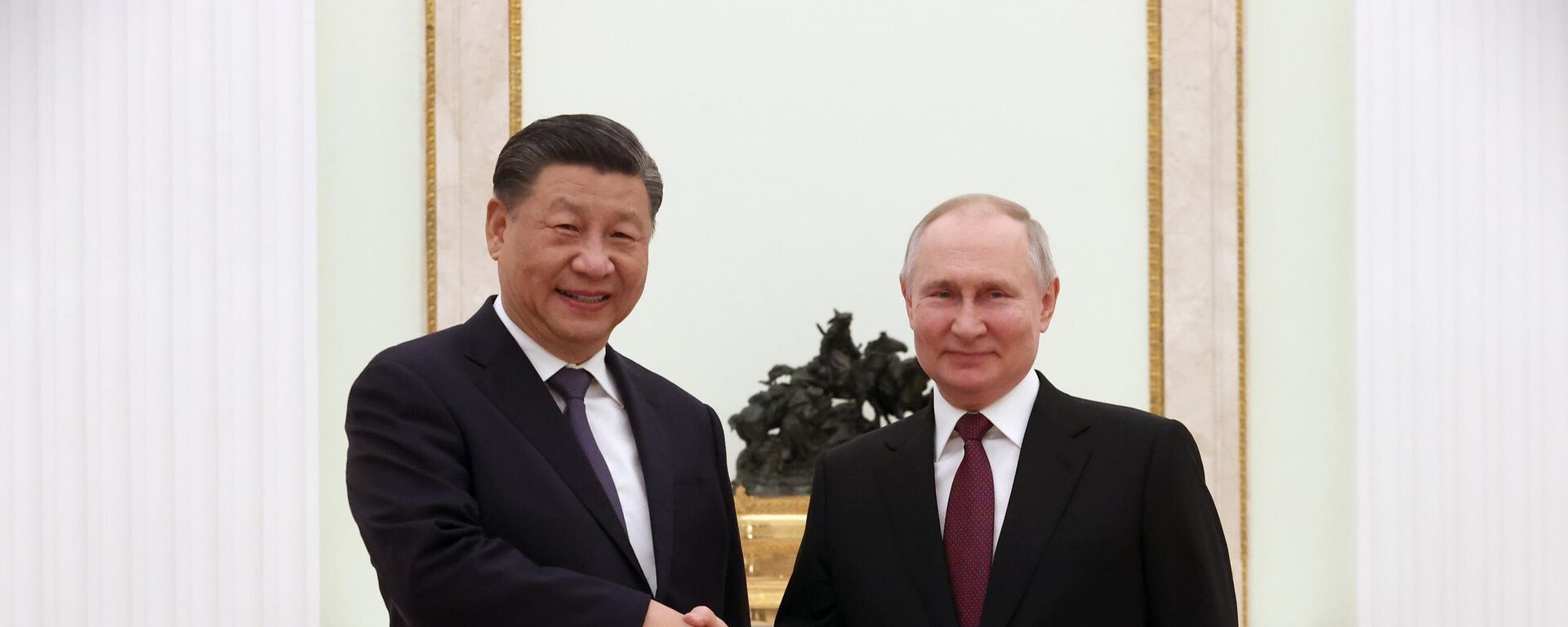
21 November 2023, 17:56 GMT
“Would that be feasible already in 2024, if there is political will?”
“There are some start-ups already. By the way, they are in the West, and the digitalization is conducted by private companies, not Central Banks. So the demand is there. Our Central Bank needs to elaborate a proposal for the summit in Kazan. But this is only one part of the story. The second part is price. For the moment price is determined by Western speculation. We produce these commodities, we consume them, but we do not have our own price mechanism, which will balance supply and demand. During the Covid panic, the price for oil fell to nearly zero. It’s impossible to make any strategic planning for economic development if you do not control prices of basic commodities. Price formation with this new currency should get rid of Western exchanges of commodities. My idea is based on a mechanism that existed in the Soviet Union, in the Comecon. In that period we had long-term agreements not only with socialist countries, but also with Austria, and other Western countries, to supply gas for 10 years, 20 years, the basis of this price formula was the price for oil, and the price for gas.”
So what stands out is the effectiveness of a long-term, long view policy: “We did create a long-term pattern. Here in the EEC we are looking at the idea of a common exchange market. We already prepared a draft, with some experiments. The first step is the creation of an information network, exchanges in different countries. It was rather successful. The second step will be to set up online communication between exchanges, and finally we move to a common mechanism of price formation, and open this mechanism for all other countries. The main problem is that the major producers of commodities, first of all the oil companies, they don’t like to trade through exchanges. They like to trade personally, so you need a political decision to make sure that at least half of production of commodities should go through exchanges. A mechanism where supply and demand balance each other. For the moment the price of oil in foreign markets is ‘secret’. It’s some type of colonial times thinking. ‘How to cheat’. We must create legislation to open all this information to the public.”
The NDB in Need of a Shake-up
Glazyev offered an extensive analysis of the BRICS universe, based on how the BRICS Business Council had its first meeting on financial services in early February. They agreed on a working plan; there was a first session of fintech experts; and during this week a breakthrough meeting may lead to a new formulation – for the moment not made public – to be put into the BRICS agenda for the October summit.
“What are the main challenges within the BRICS structure in this next stage of trying to bypass the US dollar?”
“BRICS in fact is a club which doesn’t have a secretariat. I can tell it, from a person that has some experience in integration. We discussed the idea of a customs union here, on the post-Soviet territory, immediately after the collapse. We had a lot of declarations, even some agreements signed by heads of state, over a common economic space. But only after the establishment of a commission the real work stated, in the year 2008. After 20 years of papers, conferences, nothing was done. You need someone who’s responsible. In BRICS there is such an organization - the NDB [New Development Bank]. If the heads of state decide to appoint the NDB as an institution which will elaborate the new model, the new currency, organize an international conference with the draft of an international treaty, this can work. The problem is that the NDB works according to the dollar charter. They have to reorganize this institution in order to make it workable. Now it works like an ordinary international development bank under the American framework. The second option would be to do it without this bank, but that would be much more difficult. This bank has enough expertise.”
“Could an internal shake-up of the NDB be proposed by the Russian presidency of BRICS this year?”
“We are doing our best. I’m not sure the Ministry of Finance understands how serious this is. The President understands. I personally promoted this idea to him. But the chairman of the Central Bank, and ministers are still thinking in the old IMF paradigm.”
‘Religious Sects Don’t Create Innovation’
Glazyev had a serious discussion on sanctions with the NDB:
“I discussed this issue with Mrs. Rousseff [the former Brazilian President, currently presiding the NDB) at the St. Petersburg Forum. I gave her a paper about it. She was rather enthusiastic and invited us to come to the NDB. But afterwards there was no follow-up. Last year everything was very difficult.”
On BRICS, “the financial services working group is discussing reinsurance, credit rating, new currencies in fintech. That’s what should be in the agenda of the NDB. The best possibility would be a meeting in Moscow in March or April, to discuss in depth the whole range of issues of BRICS settlement mechanism, from most sophisticated to least sophisticated. It would be great if the NDB sign up for it, but as it stands there is a de facto gulf between the BRICS and the NDB.”
The key point, insists Glazyev, is that “Dilma should find time to organize these discussions at a high level. A political decision is needed.”
“But wouldn’t that decision have to come from Putin himself?”
“It’s not so easy. We heard statements by at least three heads of the state: Russia, South Africa and Brazil. They publicly said ‘this is a good idea’. The problem, once again, is there is no task force yet. My idea, which we proposed before the BRICS summit in Johannesburg, is to create an international working group – to prepare in the next sessions the model, or the draft, of the treaty. How to switch to national currencies. That’s the official agenda now. And they have to report about that in Kazan [for the BRICS annual summit]. There are some consultations between the Central Banks and Ministers of Finance.”
Glazyev cut to the chase when it comes to the inertia of the system: “The main problem for bureaucrats and experts is ‘why they don’t have ideas?’ Because they assume the current status quo is the best one. If there are no sanctions, everything will be good. The international financial architecture that was created by the United States and Europe is convenient. Everyone knows how to work in the system. So it’s impossible to move from this system to another system. For businesses it will be very difficult. For banks it will be difficult. People have been educated in the paradigm of financial equilibrium, totally libertarian. They don’t care that prices are manipulated by speculators, they don’t care about volatility of national currencies, They think it’s natural (…) It’s a kind of religious sect. Religious sects don’t create innovation.”
Now Get on That Hypersonic Bicycle
We’re back to the crucial issue of national currencies: “Even five years ago, when I spoke about national currencies in trade, everybody said it was completely impossible. We have long-term contracts in dollars and euro. We have an established culture of transactions. When I was Minister of Foreign Trade, 30 years ago, at the time I tried to push all our trade in commodities into rubles. I argued with Yeltsin and others, ‘we have to trade in rubles, not in dollars’. That would automatically make the ruble a reserve currency. When Europe moved to the euro, I had a meeting with Mr. Prodi, and we agreed, ‘we will use euro as your currency, and you will use rubles’. Then Prodi came to me after consultations and said, ‘I talked to Mr. Kudrin [former Russian Finance Minister, 2000-2011], he didn’t ask me to make the ruble a reserve currency’. That was sabotage. It was stupidity.”
The problems actually run deep – and keep running: “The problem was our regulators, educated by the IMF, and the second problem was corruption. If you trade oil and gas in dollars, a large part of profits is stolen, there are a lot of intermediate companies which manipulate prices. Prices are only the first step. The price for natural gas in the first deal is about 10 times less than the final demand. There are institutional barriers. A majority of countries do not allow our companies to sell oil and gas to the final customer. Like you cannot sell gas to households. Nevertheless, even in the open market, quite competitive, we have intermediates between producer and consumer – at least half of the revenues are stolen from government control. They don’t pay taxes.”
Yet fast solutions do exist: “When we were sanctioned two years ago, transfer from US dollar and euro to national currencies took only a few months. It was very quick.”
On investments, Glazyev stressed success in localized trade, but capital flows are still not there: “The Central Banks are not doing their job. The ruble-renminbi exchange is working well. But the ruble-rupee exchange doesn’t work. The banks that keep these rupees, they have a lot of money, accrue interest rates on these rupees, and they can play with them. I don’t know who’s responsible for this, our Central Bank or the Indian Central Bank.”
The succinct, key takeaway of Glazyev’s serious warnings is that it would be up to the NDB – prodded by the leadership of BRICS – to organize a conference of global experts and open it for public discussion. Glazyev evoked the metaphor of a bicycle that keeps rolling along – so why invent a new bicycle? Well, the – multipolar – time has come for a new hypersonic bicycle.
